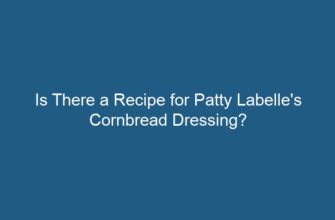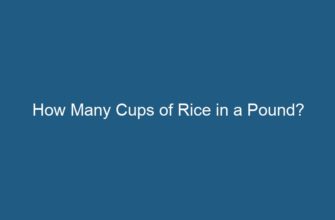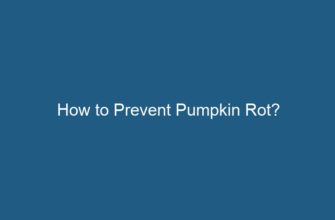One common question that many people have is whether it is safe to consume bread after its expiration date has passed. The expiration date on food products is typically used as a guideline for when the product is at its peak freshness and quality. However, it does not necessarily mean that the food is no longer safe to eat. In this article, we will explore the topic of eating bread after its expiration date and provide detailed information on various subtopics related to this question.
- 1. Understanding expiration dates on bread
- 2. Factors affecting the shelf life of bread
- 2.1 Packaging
- 2.2 Ingredients
- 2.3 Storage conditions
- 3. Signs of bread spoilage
- 3.1 Mold growth
- 3.2 Off or sour smell
- 3.3 Visible signs of staleness
- 4. Can you eat bread after its expiration date?
- 5. Ways to extend the shelf life of bread
- 5.1 Freezing
- 5.2 Refrigeration
- 5.3 Bread boxes
- 6. Frequently Asked Questions (FAQs)
- FAQ 1: Can I eat bread past the expiration date if it has been stored in the refrigerator?
- FAQ 2: How long can bread be consumed after the expiration date?
- FAQ 3: Can I remove mold from bread and still eat it?
- FAQ 4: Can I eat bread that has gone stale?
- FAQ 5: Does freezing bread affect its taste and texture?
- FAQ 6: Can bread be rehydrated if it becomes dry?
- FAQ 7: Does toasting bread kill bacteria or mold?
- FAQ 8: Can I eat bread that has an off smell but shows no other signs of spoilage?
- FAQ 9: Can I eat bread that has been frozen for a long time?
- FAQ 10: Is it better to buy bread from a bakery or a supermarket?
- Conclusion
1. Understanding expiration dates on bread
Before delving into whether it is safe to eat bread after its expiration date, it is important to understand what expiration dates actually mean. The expiration date on bread is typically printed on the packaging and serves as an indicator of when the bread is expected to start losing its freshness and quality. This date is determined by the manufacturer based on factors such as the ingredients used, the packaging method, and the desired shelf life of the product.
It is important to note that expiration dates are not regulated by law in all countries. In some regions, bread may have a “best before” date instead of an expiration date. The “best before” date indicates that the product may not be at its optimal quality after that date, but it does not necessarily mean that it is unsafe to consume.
2. Factors affecting the shelf life of bread
Several factors can influence the shelf life of bread, even if it has not reached its expiration date. Understanding these factors can help determine whether it is safe to consume bread after its expiration date:
2.1 Packaging
The type of packaging used for bread can significantly affect its shelf life. Bread stored in airtight packaging is likely to stay fresh for a longer period compared to bread stored in paper bags or exposed to air. Airtight packaging helps prevent moisture loss and slows down the growth of mold and bacteria.
2.2 Ingredients
The ingredients used in bread can also impact its shelf life. Bread made with preservatives or additives tends to have a longer shelf life compared to bread made with natural ingredients. Preservatives help inhibit the growth of mold and bacteria, thus extending the freshness of the bread.
2.3 Storage conditions
The way bread is stored plays a crucial role in determining its shelf life. Proper storage involves keeping bread in a cool, dry place away from direct sunlight and humidity. Storing bread in the refrigerator can also help prolong its freshness, although it may cause the bread to become stale faster.
3. Signs of bread spoilage
Regardless of the expiration date, it is important to be aware of the signs of bread spoilage. Consuming spoiled bread can lead to foodborne illnesses and should be avoided. Here are some indicators that bread may have gone bad:
3.1 Mold growth
If you notice mold growing on your bread, it is a clear sign that it has spoiled. Mold can be green, blue, or white in color and may appear as fuzzy patches on the surface of the bread. Consuming moldy bread can be harmful to your health and should be discarded.
3.2 Off or sour smell
If your bread emits an off or sour smell, it is likely spoiled. Fresh bread typically has a pleasant aroma, while spoiled bread may have a musty or unpleasant odor. Trust your sense of smell and discard bread that smells off.
3.3 Visible signs of staleness
Stale bread often becomes dry, hard, or crumbly. If your bread feels significantly different in texture compared to when it was fresh, it may have gone stale. While stale bread may not necessarily be unsafe to consume, it may not provide an enjoyable eating experience.
4. Can you eat bread after its expiration date?
Now that we have covered the basics, let’s address the main question: Can you eat bread after its expiration date? The answer depends on various factors, including the bread’s condition, storage methods, and personal preferences.
In many cases, bread can still be safely consumed after its expiration date as long as there are no signs of spoilage. If the bread is properly stored, shows no signs of mold or an off smell, and has not undergone any significant changes in texture, it is likely safe to eat. However, it is important to exercise caution and use your own judgment when deciding whether to consume expired bread.
It is worth noting that consuming bread after its expiration date may result in a slight decline in quality. The bread may become drier, harder, or less flavorful over time. If you prefer bread that is fresh and soft, it is best to consume it before its expiration date.
5. Ways to extend the shelf life of bread
If you frequently find yourself with bread nearing its expiration date, there are several methods you can use to extend its shelf life:
5.1 Freezing
Freezing bread is an effective way to prolong its freshness. Before freezing, make sure to wrap the bread tightly in plastic wrap or aluminum foil to prevent freezer burn. When you’re ready to consume the bread, thaw it at room temperature or use a toaster or oven to warm it up.
5.2 Refrigeration
While refrigeration can cause bread to become stale faster, it can still help extend its shelf life. Keep the bread in a sealed bag or airtight container to prevent moisture loss. If the bread becomes slightly stale, you can refresh it by sprinkling some water on the surface and heating it in the oven for a few minutes.
5.3 Bread boxes
Using a bread box can help maintain the freshness of bread by providing a cool, dark, and slightly humid environment. Bread boxes are designed to regulate moisture levels, which can prevent bread from drying out too quickly.
6. Frequently Asked Questions (FAQs)
FAQ 1: Can I eat bread past the expiration date if it has been stored in the refrigerator?
Yes, storing bread in the refrigerator can help extend its shelf life. If the bread shows no signs of spoilage, such as mold growth or an off smell, it is generally safe to consume even after the expiration date.
FAQ 2: How long can bread be consumed after the expiration date?
The length of time bread can be safely consumed after the expiration date varies depending on various factors such as storage conditions and the type of bread. In general, if there are no signs of spoilage, it is safe to consume bread for a few days to a week after the expiration date.
FAQ 3: Can I remove mold from bread and still eat it?
No, it is not safe to consume bread that has mold on it. Mold can produce toxins that can cause illness, and simply removing the visible mold does not eliminate the potential health risks.
FAQ 4: Can I eat bread that has gone stale?
While stale bread may not be harmful to consume, it may not provide an enjoyable eating experience. Stale bread can be used for making breadcrumbs, croutons, or bread pudding instead of being eaten as is.
FAQ 5: Does freezing bread affect its taste and texture?
Freezing bread can slightly affect its taste and texture. However, if properly stored and thawed, the difference is minimal. Freezing is a great way to preserve bread for longer periods without compromising its overall quality.
FAQ 6: Can bread be rehydrated if it becomes dry?
Yes, if your bread has become dry, you can rehydrate it by sprinkling some water on its surface and heating it in the oven for a few minutes. This can help restore some moisture and make the bread softer.
FAQ 7: Does toasting bread kill bacteria or mold?
Toasting bread can kill surface bacteria, but it may not eliminate any bacteria or mold that has penetrated deeper into the bread. If your bread shows signs of spoilage, it is best to discard it rather than relying on toasting to make it safe for consumption.
FAQ 8: Can I eat bread that has an off smell but shows no other signs of spoilage?
If your bread has an off smell, it is best to err on the side of caution and not consume it. An off smell can be an indication of spoilage, even if there are no visible signs such as mold. Consuming bread with an off smell can lead to foodborne illnesses.
FAQ 9: Can I eat bread that has been frozen for a long time?
If bread has been properly stored in the freezer, it can be consumed even after a long time. However, its quality may have deteriorated over time, resulting in changes in taste and texture. It is recommended to consume frozen bread within 3-6 months for the best quality.
FAQ 10: Is it better to buy bread from a bakery or a supermarket?
Both bakery and supermarket bread can be safe to consume if stored and handled properly. However, bakery bread is often made without preservatives and may have a shorter shelf life compared to commercially produced supermarket bread. It is important to consider the expiration dates and storage recommendations provided for each type of bread.
Conclusion
In conclusion, eating bread after its expiration date is generally safe as long as there are no signs of spoilage. Factors such as packaging, ingredients, and storage conditions can affect the shelf life of bread. It is important to trust your senses and use your own judgment when deciding whether to consume expired bread. By understanding the signs of spoilage and implementing proper storage methods, you can enjoy bread even after its expiration date. Remember to prioritize your health and discard any bread that shows signs of mold growth, an off smell, or a significant change in texture.










